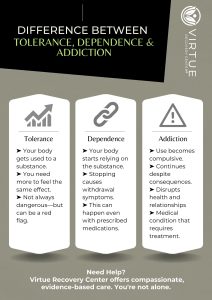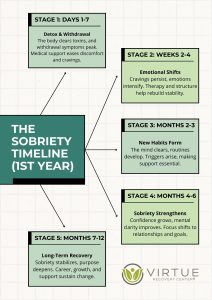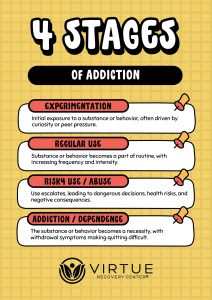Key Takeaways
- Crystal meth is a stimulant drug that disrupts sleep, often causing insomnia and poor sleep quality.
- Methamphetamine use affects the brain’s natural sleep-wake cycle, resulting in sleep deprivation and severe health issues.
- Recovery programs and addiction treatment can help individuals manage meth-related sleep problems and improve their overall sleep quality.
Introduction to How Methamphetamines Affect Sleep Patterns
Crystal meth is a powerful stimulant that affects both the brain and body and one of the most noticeable effects is its impact on sleep. Methamphetamine use can keep users awake for long periods, often causing insomnia and other sleep disturbances. For people who rely on meth, getting a good night’s sleep can feel impossible.
Understanding how crystal meth affects sleep is essential, especially for those looking to quit. Meth disrupts sleep patterns, which leads to daytime sleepiness, mood changes, and even more severe health issues over time. This article explores how meth use affects sleep, why insomnia is a common problem for meth users, and what treatments are available for people in recovery.
How Crystal Meth Affects Sleep Quality
Crystal meth is a Schedule II stimulant, meaning it is a highly controlled drug with a high potential for abuse. It directly impacts the central nervous system by increasing levels of dopamine and serotonin, two brain chemicals that affect mood, alertness, and energy levels. Meth floods the brain with dopamine, creating a strong feeling of euphoria and alertness. This high can keep people awake for hours or even days, leading to severe sleep deprivation. Meth’s effect on dopamine and serotonin also prevents the brain from relaxing, making it hard for people to feel tired or fall asleep naturally.
People who use meth feel energized, talkative, and alert. While this may seem like a boost in the short term, the body and brain are missing out on essential sleep cycles, including REM sleep. Missing out on REM sleep affects both mental and physical health. Over time, this disrupted sleep pattern from meth use can create long-term severe sleep issues, often making it nearly impossible to get consistent, restful sleep.
Insomnia and Long-Term Sleep Problems from Methamphetamine Use
Insomnia is common in those who use methamphetamine regularly. Meth keeps the brain in an overactive state, which prevents users from being able to wind down or fall asleep quickly. Because meth disrupts the brain’s ability to enter REM sleep—the stage of sleep where the body recovers from the day—chronic meth use leads to ongoing sleep deprivation.
Long-term use can also lead to ongoing issues like fragmented sleep, where people wake up multiple times a night or struggle with unusual sleep cycles. Missing out on quality sleep increases the risk of mood swings, depression, and even psychosis, especially in those who have been using meth over extended periods. These health issues make quitting and recovering difficult, as users may rely on meth to manage the energy and focus they can’t get naturally due to poor sleep.
Meth Withdrawal and Sleep Issues
When a person tries to quit meth, sleep problems don’t disappear right away. Insomnia and fragmented sleep are common issues during withdrawal. Often, those going through meth withdrawal feel exhausted but find it hard to sleep as the body tries to readjust its dopamine and serotonin levels. This creates a period where sleep is highly needed and difficult to achieve.
During withdrawal, people may feel extreme fatigue but only get broken or fragmented sleep. They may wake up frequently or have trouble falling into deep sleep, leading to daytime sleepiness and mood swings. Many experience cravings and discomfort during detox, making sleep even harder. However, with medical support and a structured detox, it’s possible to manage these symptoms and gradually work toward normal sleep.
Treatment Options to Improve Sleep Quality in Recovery
Recovering from meth addiction and restoring healthy sleep patterns takes time and support. Several treatment options can help improve sleep quality during and after recovery. Cognitive Behavioral Therapy (CBT) is a helpful form of counseling that addresses both addiction and sleep problems by helping individuals identify thought patterns that interfere with restful sleep. Therapy also provides tools for handling cravings and reducing stress that might otherwise make sleep difficult.
In some cases, medications may be used to ease withdrawal symptoms, which can improve sleep quality in the early stages of recovery. Medication-assisted treatment can provide relief, allowing the brain and body to rest more easily while adjusting to life without meth. In addition to therapy and medication, individuals need to build healthy sleep habits, such as going to bed at the same time every night, limiting caffeine, and creating a relaxing sleep environment. Over time, these habits support a more consistent and restorative sleep pattern, essential for long-term recovery.
Conclusion
Methamphetamine use can seriously affect a person’s ability to sleep, often causing insomnia and poor sleep quality. The stimulant nature of meth disrupts natural sleep patterns, which can lead to sleep deprivation, mood swings, and long-term health risks. Even during withdrawal, sleep issues may continue, making it crucial for individuals to seek support from a recovery program.
If you or someone you know is struggling with sleep problems due to meth use, reaching out for help is an important step. Contact Virtue Recovery Las Vegas at 866-520-2861 to learn more about our treatment options and support for lasting recovery.
FAQs About Crystal Meth-Induced Insomnia
Does crystal meth cause sleep problems?
Yes, crystal meth is a stimulant that disrupts standard sleep patterns, causing insomnia and making it hard for users to get restful sleep.
What are the effects of long-term meth use on sleep?
Long-term meth use can lead to chronic sleep deprivation, mood swings, and disturbed REM sleep, all of which make it difficult to rest and recover.
Can sleep quality improve after stopping meth?
Yes, sleep quality can improve after quitting meth, though it may take time. Many people experience lingering sleep disturbances during withdrawal.
How does meth withdrawal affect sleep?
During meth withdrawal, individuals often feel fatigued but may have trouble falling or staying asleep as their brain adjusts to new dopamine and serotonin levels.
What treatments help with sleep issues after meth addiction?
Treatments include counseling, medication-assisted treatment, and developing healthy sleep routines to support recovery from meth addiction.
What are some crystal meth addiction treatment programs?
Crystal meth addiction is often treated through a combination of inpatient rehab, outpatient therapy, and support groups. Cognitive Behavioral Therapy (CBT) is highly effective in addressing the triggers and patterns of meth use, while programs like Contingency Management reward positive behavior changes. Long-term support, including 12-step programs and aftercare planning, is essential for recovery.
What are the side effects of meth use?
Meth can cause a ton of side effects: rapid heart rate, high blood pressure, insomnia, loss of appetite, and elevated body temp. Long-term use can cause “meth mouth” (tooth decay), skin sores, paranoia, and hallucinations. Chronic use can also mess with your mental health: anxiety, aggression, and psychosis.
What is a meth comedown like?
A meth comedown is intense. You’ll feel exhausted, irritable, depressed, and crave more of the drug. Many users experience “crashing,” which can be days of fatigue, low mood, and not being able to feel pleasure (anhedonia).
Can you fall asleep on meth?
No, it’s hard to fall asleep on meth. It’s a stimulant that keeps your brain and body active. Some users may get microsleeps or crash after prolonged use, but regular deep sleep is impossible.
Resources
https://pubmed.ncbi.nlm.nih.gov/33406259/
https://www.medicalnewstoday.com/articles/23207
https://www.webmd.com/mental-health/addiction/crystal-meth-what-you-should_know













